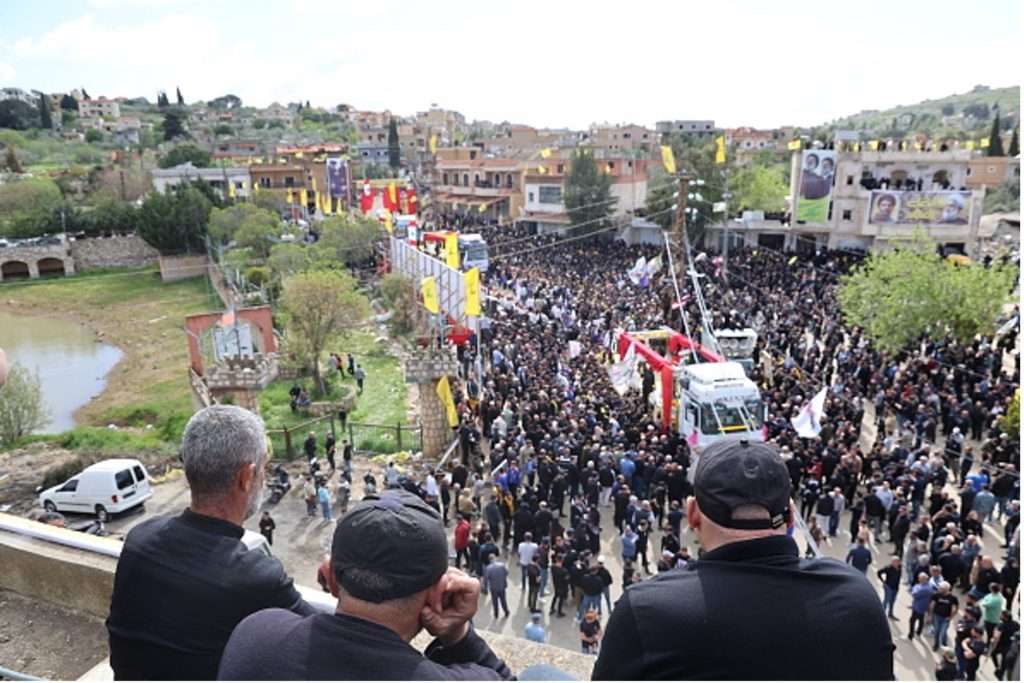Lebanon wraps up local elections amid border tensions

Lebanon successfully concluded the final phase of its municipal and local elections on 24th May, with residents in the southern governorates of South Lebanon and Nabatieh heading to the polls despite heightened tensions along the border with Israel. According to Arab World News, the vote proceeded under what officials described as “international guarantees,” aimed at deterring Israeli interference and ensuring the electoral process was not disrupted.
The elections took place just 48 hours after a sharp escalation along the Lebanese-Israeli border, sparking concerns that violence could jeopardise voter turnout or derail the process. However, Lebanese authorities confirmed that international diplomatic pressure had been applied to prevent any Israeli military action during the vote.
President Joseph Aoun, who cast his ballot in his hometown of Al-Aishiyeh in Nabatieh, affirmed those reassurances, saying there were “guarantees” in place to prevent Israeli attacks on election day.
While Israeli drones loomed over several southern villages, no airstrikes were reported. Local field sources noted that Israeli violations of the ceasefire were limited to aerial surveillance and the launching of flares from a military outpost near Shebaa. Lebanon’s state-run National News Agency corroborated the reports, citing minimal breaches of the fragile truce.
In a show of symbolic resilience, President Aoun addressed supporters in the south, asserting: “The will to live is stronger than death, and the will to build is stronger than the will to destroy.”
He noted that the elections coincided with the anniversary of Lebanon’s 2000 liberation from Israeli occupation, framing the vote as both a celebration of sovereignty and a reaffirmation of democratic rights. “These elections are about development, not politics,” he said, underscoring the importance of rebuilding war-torn communities over partisan competition.
Aoun began his election day in Sidon, where he toured the local government compound alongside Defense Minister Michel Menassa and Interior Minister Hajjar. Addressing civil servants and military officials, he paid tribute to those who had lost their lives defending the region. “They are a beacon of freedom and dignity for future generations,” he said.
Urging citizens to turn out in large numbers, Aoun described voting as both a right and a responsibility: an act of defiance and hope in the face of decades of turmoil. “These elections are an opportunity to shape the future for the next generation. It is the duty of every voter to take part in Lebanon’s reconstruction,” he stated during a later visit to Nabatieh, where he also chaired a security meeting.
“The people of the south are determined to participate, and that reflects their resilience and commitment to rebuilding,” he added, commending voter resolve amid repeated threats and ongoing hardship.
For Aoun, the day carried personal weight as well. After decades of overseeing the security of elections, he cast his own vote for the first time in his native Al-Aishiyeh, where all municipal seats had been filled by consensus. “For 40 years I’ve protected elections; today I vote for the first time – for the development of my village,” the former army chief told reporters.
He described the unopposed results in his hometown as a reflection of “consensual democracy,” adding, “Had there been no agreement, competitive elections would have been held, which is natural in a democratic system.”
When asked again about potential Israeli aggression, Aoun remained steadfast. “Guarantees are in place,” he affirmed, urging citizens to cast their votes boldly and with purpose. “The message today is that the south is an integral part of Lebanon, and no force should stand in the way of the Lebanese people’s will to endure.”
Arab World News/ Maghrebi.org
Want to chase the pulse of North Africa?
Subscribe to receive our FREE weekly PDF magazine












